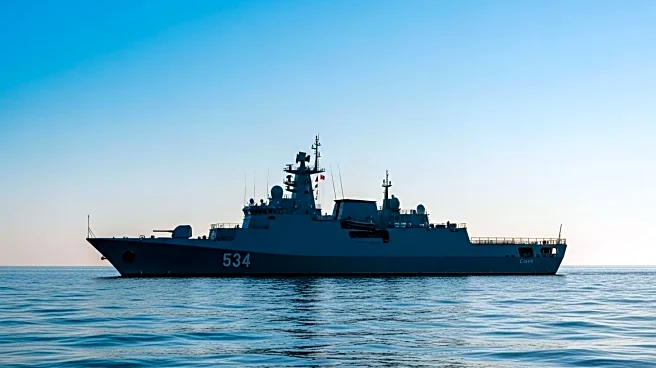What is the story about?
What's Happening?
NATO officials have reported a decrease in Russia's naval presence in the Mediterranean, attributing this to readiness issues and increased focus on the Baltic Sea and High North regions. Previously, Russia maintained a significant naval task force in the Mediterranean, but recent assessments indicate a reduction in maritime assets. The loss of Russia's strategic port in Tartus, Syria, and NATO's bolstered presence in the Baltic and High North regions are key factors affecting Russia's naval operations. The termination of the Soviet-Syrian lease agreement for the Tartus port has impacted Russia's operational capabilities in the region.
Why It's Important?
The decline in Russian naval presence in the Mediterranean has strategic implications for regional security dynamics. NATO's increased presence in the Baltic and High North regions reflects a shift in focus to counter Russian influence and protect critical infrastructure. The loss of the Tartus port limits Russia's ability to sustain operations in the Mediterranean, potentially affecting its geopolitical influence in the region. This development underscores the importance of strategic naval positioning and resource allocation in maintaining regional security and stability.
Beyond the Headlines
The reduction in Russian naval assets in the Mediterranean highlights the challenges faced by Russia in maintaining its naval operations amid resource constraints and geopolitical shifts. The strategic importance of naval bases and access to replenishment facilities is crucial for sustaining long-term operations. As NATO continues to enhance its presence in key regions, the balance of naval power may shift, influencing future security and defense strategies. The integration of unmanned surface vessels and advanced naval technologies could further impact regional naval dynamics.
















